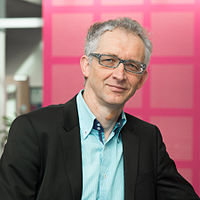In South Africa, the process of mining coal for power generation or for export is increasingly becoming difficult, because the ability to source finances in a carbon conscious market is limited. The country wants to reduce its dependence on coal and believes that in order to meet uncertain electricity demand, a smaller, more modular, and flexible form of electricity generation is needed. Liquefied natural gas (LNG), which burns more cleanly than any other fossil fuel, is deemed critical for paving the way towards an energy transition from dirtier coal to a greener source of energy. Gas complements not only renewable energy penetration, but it also speaks to regional trade ambitions within the Southern African Development Community (SADC), energy diversification, as well as integration into re-industrialization policies.

Coal miner returning home after his shift underground. Sourcing financing for coal mining is becoming more difficult in an increasingly carbon conscious market. Credit: Jan Truter (CC BY-NC-ND 2.0)
The technology to transport LNG via ships is also becoming more sophisticated, which would allow it to bypass the conventional route of pipelines. Therefore, a co-evolution of technology maturity, market dynamics, user preferences, energy and industrial policy are aligning to enable gas use in the country.
With this as its backdrop, South Africa launched its Gas Industrialization Unit (GIU) on 16 May 2016 in Cape Town. There are no indications as yet as to where the LNG may be imported or which ports are likely to be the first to gain such an initiative. This is now the second gas initiative by the government. Earlier last year the Department of Energy directed the department to procure a 3.12 GW gas-fired power plant to contribute towards the energy security of the country through the Independent Power Producer Programme (IPP).
It is envisaged that the Gas IPP will serve as a catalyst for industrial development, as it has been indicated that gas could also be a feedstock for new industrial uses, a source of heat for industrial process and for conversion of Gas to Liquid fuels (GTL). Although South Africa does have potential domestic shale gas reserves located within the Karoo region, this development will take many years to realise. Thus, the immediate plans for the Gas IPP is to import Liquefied Natural Gas (LNG) through its three ports: Saldanha Bay (West Coast near Cape Town), Coega (Port Elizabeth) and Richards Bay (Durban).
Both initiatives are running in parallel with significant coordination between actors that include government, industries, academia and state-owned entities.
The Gas IPP is thought at this preliminary stage to be coordinated in a bundled offshore project. This means the entire value chain from LNG sourcing, Floating Storage and Regasification Unit (FSRU), pipeline to shore, and gas to power plant is to be procured by an independent private entity. Naturally, this would mean that as the Gas IPP is rolled out, bidding would be in the form of a consortium that would require substantial coordination between upstream, midstream and downstream players. Implementation of this programme will prove a challenging task. The challenges include not only coordination between players, but also the dollar base indexation of import LNG prices, which will have a direct impact on domestic electricity tariffs in South Africa. The country is already facing huge public resistance to electricity increases and its domestic currency is weakening against the US dollar. There are also potential implications for existing regulations, such as the Gas Act, the Ports Act, and the Electricity Regulation Act (ERA), which have not yet been applied or tested with this new initiative.
Despite these challenges, there is a substantial push to use gas in the country. South Africa’s policy community keeps emphasising the importance of regional trade between SADC. The main drivers include significant offshore natural gas finds in northern Mozambique, particularly in the Rovuma Basin and Namibian Kudu gas fields. Botswana also has coal bed methane gas, a form of natural gas extracted from coal beds.
Interestingly, these developments are occurring during challenging major shifts in the global LNG market. Traditional buyers, such as Japan, are reducing their LNG imports due to their plans to restart their nuclear reactors. Moreover, countries such as Australia and the USA are starting to increase their capacity to export LNG through various infrastructure developments. Thus, the current perception is that a global supply glut of LNG is expected, with reorientation of traditional buyers and sellers. Furthermore, LNG is also increasingly being perceived as the new “oil” commodity, not only because oil is undergoing uncertainty, but also LNG is becoming easier to ship through advances in liquefaction technologies.
All this will make the South African gas policy and market developments interesting ones to follow.
Blanche Ting is currently a doctoral researcher based at the Science Policy Research Unit (SPRU) and a member of the Sussex Energy Group at the University of Sussex. Her research is focused on South Africa’s electricity system, with case studies on Independent Power Producers (IPPs), namely gas, renewable and coal and the implications on the dominant state owned monopoly of Eskom. She holds two Masters degrees in Climate Change and Development from the Institute of Development Studies (IDS), UK as a Mandela-Sussex Scholar (2011) and a Masters in Bioprocess Engineering from the University of Cape Town (2004). Her interests are energy transitions in resource base economies, particularly in Africa and Latin America.
Follow Sussex Energy Group








